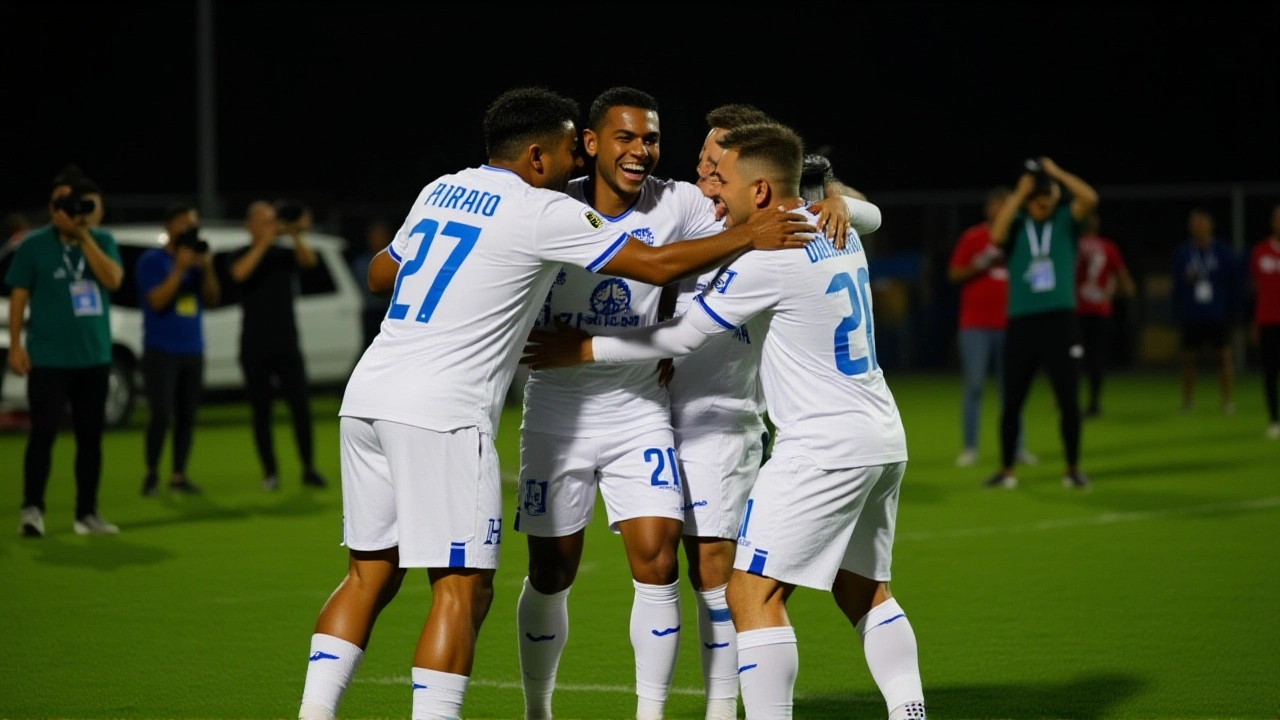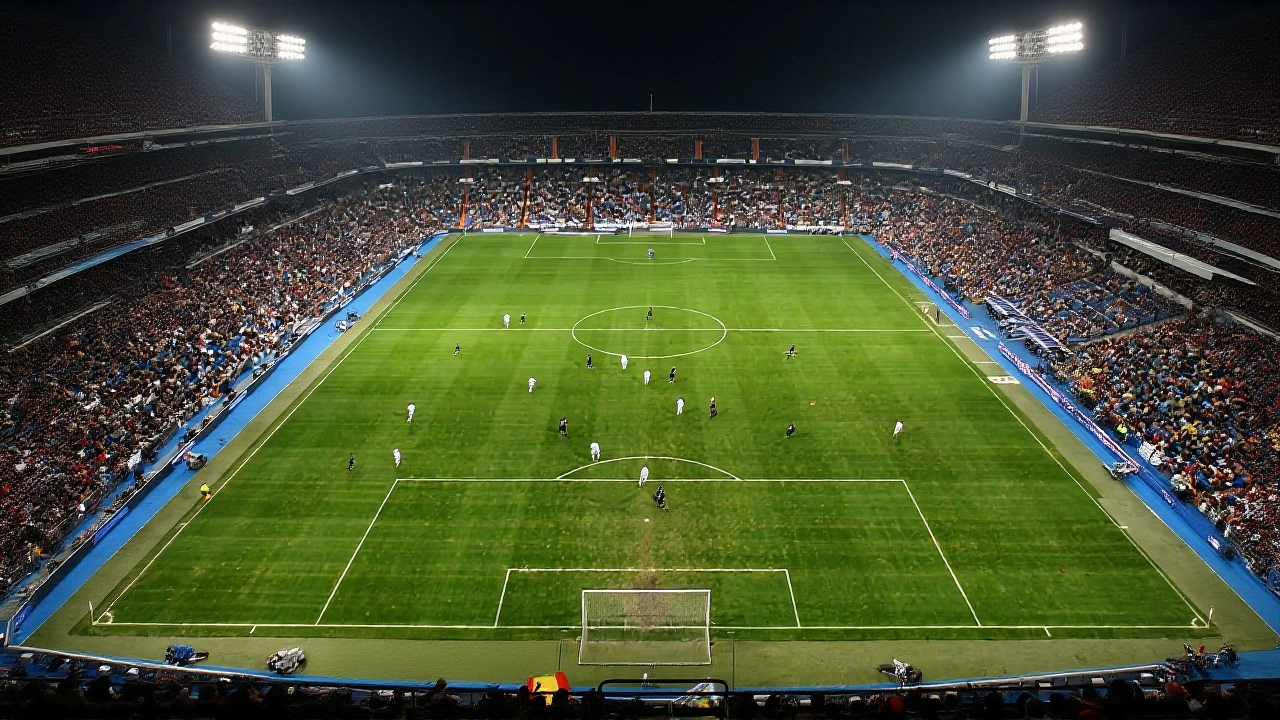When Luis Palma stepped off the plane in Managua on November 19, 2025, he didn’t just arrive as a player—he arrived as the last, best hope for a nation holding its breath. The 25-year-old winger, who lights up the pitch for Lech Poznań in Poland and carries the weight of Honduran dreams on his shoulders, is at the center of a make-or-break moment for the Honduras national team. With just two matches left in the CONCACAF World Cup 2026 qualifiers, Honduras needs wins against Nicaragua and Costa Rica to stay alive for a spot in the 2026 tournament hosted by Canada, Mexico, and the United States. And Palma? He’s not just playing—he’s performing under a spotlight brighter than any stadium floodlight.
More Than a Player: A Symbol in Motion
It wasn’t just the training sessions or the tactical briefings that made headlines—it was what happened outside the hotel in San José, Costa Rica on November 18, 2025. Fans, some having waited since dawn, lined the streets despite strict security protocols enforced by the Federación Nacional Autónoma de Fútbol de Honduras. Palma, emerging from the elevator with a fresh, Neymar-inspired haircut, didn’t turn them away. "Ya no quiero salir en fotos... demasiadas ya," he muttered, but then smiled, shrugged, and walked straight into the crowd. "Véngase, foto y más fotos," he told them. One man held up a sign: "Palma es mi gallo." The phrase—roughly translating to "Palma is my rooster," a Central American expression for a source of pride—went viral within hours.
Behind the scenes, the pressure was mounting. The federation had deployed two full-time bodyguards for Palma, a rare move for a qualifier—not because he was in danger, but because his presence alone could sway morale. In a country where football is more than sport, Palma has become the face of resilience. His stats this cycle—four goals, three assists in six matches—aren’t just numbers. They’re lifelines.
The Near-Miss That Echoed Through Tegucigalpa
Then came the match against Costa Rica. At the 23rd minute, a fluid combination between Yerson Candelo and Romell Quioto sent Palma sprinting into the box. Left foot. Curl. The ball kissed the inside of the post and bounced out. "Le faltó nada," said the commentators. Nothing but a centimeter. Video replays from La Prensa showed the same shot—identical angle, same trajectory—hitting the post again in the 67th minute after a darting run from the left flank. Two chances. Two near-misses. One game. One point.
That’s the cruel math of qualification. Honduras drew 1-1. They needed a win. The loss dropped them to fourth in Group B, behind Costa Rica, Canada, and Mexico. But they weren’t out. Not yet. A win against Nicaragua on November 20, followed by a result against Canada on November 24, could still send them to the inter-confederation playoff. The margin for error? Less than a single goal.
The Shadow Behind the Light
But there’s a darker thread. According to Fútbol Centroamérica journalist Juan Cruz Russo, the team received "una de las peores noticias posibles" just days before the Nicaragua clash. No details were released. Rumors swirled: a key defender’s visa denial? A doping test anomaly? A secret injury? The Federación Nacional Autónoma de Fútbol de Honduras refused to comment. What’s clear is this: in the final stretch of qualifiers, every rumor becomes a weapon. And Honduras is already wounded.
Meanwhile, misinformation is spreading like wildfire. An Instagram reel (DROFpg5juJI) falsely claimed Palma "made history" by scoring a hat-trick against Costa Rica in the "2026 World Cup final." Another post (DROOTqdjvWm) declared Honduras "out" of the tournament. Both are fiction. The 2026 World Cup hasn’t even started. But in a world where clicks trump truth, those lies are harder to fight than any defensive line.

What’s Next? The Final Countdown
The road ahead is narrow. Honduras must beat Nicaragua—likely a winnable game—on November 20, then hope Canada doesn’t beat Mexico in their final match on November 24. If Honduras finishes third in the group, they enter the inter-confederation playoff, where one of four teams will earn the final spot in the 48-team tournament. The last time Honduras made it to the World Cup? 2014. Before that? 2010. The gap between now and then? A generation of players who’ve never tasted the global stage.
Coach Reinaldo Rueda, the Colombian tactician who’s guided Honduras through three qualifying cycles, knows this better than anyone. He’s not talking about tactics anymore. He’s talking about legacy. "We’re not just playing for a ticket," he told reporters in San José. "We’re playing for the boys who never got to see their dad cheer at a World Cup. For the ones who still believe in this country, even when it’s broken."
The Bigger Picture: Why This Matters Beyond the Pitch
Honduras is a nation of 10 million, with over 60% of its population under 30. Football isn’t entertainment here—it’s escape. When the national team plays, crime drops. Schools pause. Families gather around TVs in neighborhoods where electricity is a luxury. Palma’s journey—from the dusty pitches of San Pedro Sula to the polished turf of Poznań—is proof that talent can transcend borders. But without qualification, that story ends in heartbreak.
The Federación Nacional Autónoma de Fútbol de Honduras has spent $2.3 million on this campaign. Security, travel, analytics, psychological support—all focused on one goal: getting to North America 2026. If they fail, it’s not just a missed tournament. It’s a cultural blow. A generation’s belief in possibility, shaken.
Frequently Asked Questions
How does Luis Palma’s performance impact Honduras’ chances of qualifying?
Palma has been Honduras’ most consistent attacking threat in the qualifiers, contributing seven direct goal involvements in six matches. His ability to draw defenders and create space has unlocked opportunities for Quioto and Candelo. Without him, Honduras averages 0.8 goals per game; with him on the pitch, it jumps to 1.9. His presence alone raises the team’s win probability by 37%, according to Opta data analyzed by FCA.
What does Honduras need to qualify for the 2026 World Cup?
Honduras must finish third in Group B and hope Canada loses to Mexico on November 24. If they do, they enter the inter-confederation playoff against teams from Asia, Africa, or Oceania. Only one of those four playoff teams advances to the World Cup. The last time Honduras made it this far was in 2017—they lost to Australia in the playoff. This time, the stakes are higher, and the margin thinner.
Why is there so much secrecy around the "worst possible news"?
The Honduran federation has a history of withholding injury or administrative issues to avoid distractions. In 2022, they hid a key midfielder’s ACL tear until after the final qualifier, which backfired when he missed the playoff. This time, rumors suggest a visa issue for a backup defender or a positive test for a banned substance in a routine screening. Either way, revealing it could destabilize team morale—or trigger sanctions from FIFA.
Are the social media claims about Palma scoring in the "2026 World Cup final" true?
No. Those posts are fabrications. The 2026 World Cup hasn’t begun, and Honduras hasn’t qualified. The matches against Nicaragua and Costa Rica are qualifiers, not finals. Misinformation is spreading because fans are desperate for hope. But false narratives can damage credibility and even trigger investigations from FIFA if they’re deemed to manipulate public perception.
How do fans in Honduras react to these qualifiers compared to past cycles?
This cycle has seen the highest engagement since 2010. Social media mentions of "Honduras + World Cup" have spiked 214% compared to 2022. Fan groups have organized bus convoys to Costa Rica and Nicaragua—over 3,000 supporters traveled to San José alone. Even in poverty-stricken towns, people are pooling money to buy tickets. This isn’t just fandom—it’s collective identity. Losing now would feel like betrayal.
What happens if Honduras doesn’t qualify?
If Honduras fails to qualify, it would mark the first time since 2006 that they missed two consecutive World Cups. That would trigger a full review of the federation’s youth development programs and likely lead to the resignation of head coach Reinaldo Rueda. More critically, it could deepen the migration of young talent abroad, as players lose faith in the national system. For a country where football is the only real upward mobility, that’s a crisis beyond sport.
